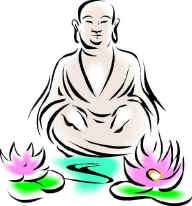
This study shows it has anti-inflammatory effects and reduces symptoms.
First, the details.
- 60 patients allergic to house dust mite allergen confirmed by skin test and MAST test participated in a 3-month study.
- Multiple radioallergosorbent (MAST) Test measures immunoglobulin E (IgE) and is used detect inhaled allergens (eg, pollens, molds, dust, mites, animal dander), foods, insect stings, and other allergens (eg, drugs).
- The participants were randomly assigned to treatment with bu-zhong-yi-qi-tang or a non-effective formula, which served as a control.
And, the results.
- The nasal symptom scores improved significantly after bu-zhong-yi-qi-tang treatment.
- There was no change in the other group.
- Blood levels of IgE were significantly lower in the bu-zhong-yi-qi-tang group vs the control group.
- Production of IL-4 (interleukin-1; stimulates immune system cells that fight disease and is involved in inflammation) was significantly stimulated vs the control group.
- Production of prostaglandin E2 (PGE2; controls inflammation) and leukotriene C4 (LTC4; controls hypersensitivity and bronchoconstriction) were significantly suppressed by bu-zhong-yi-qi-tang vs the control group.
- COX-2 mRNA expression (involved in allergic and inflammatory disease) in IL-4-stimulated white blood cells was also significantly suppressed after bu-zhong-yi-qi-tang treatment.
The bottom line
A very detailed study by Taiwanese researchers, which should stimulate more research and perhaps a more prominent role for bu-zhong-yi-qi-tang in the allopathic treatment of allergic rhinitis.
Bu-zhong-yi-qi-tang is also known as Tonify the Middle and Benefit Qi Formula.
1/20/08 21:04 JR